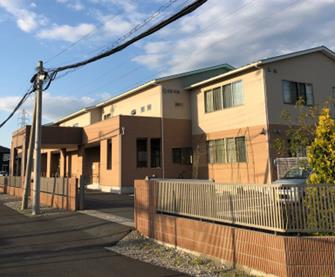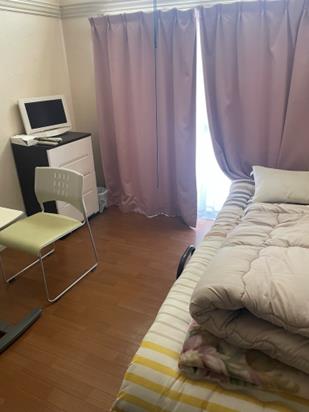Development of the Community Life Support Center in Yoshikawa City
Masatoshi Seiza
President, Sairinkai, Social Welfare Corporation
1. About Sairinkai (Social Welfare Corporation)
In 2004, we opened Hidamari, a small-scale workshop for persons with mental disabilities in Yoshikawa City. In 2006, we established the NPO Namazu-no-sato Fukushi-kai. In 2007, we opened Suzuran, a Consultation Support Center for Persons with Disabilities in Yoshikawa City, which is part of a consultation support program entrusted by the city (hereafter referred to as “Suzuran”).
In 2018, it became a social welfare corporation called Sairinkai, which opened the Namazu-no-sato Comprehensive Support Center for the Welfare of Persons with Disabilities as a complex facility. Within this facility, we provide the following services:
- ・Multifunctional services:
- -Daily nursing care
- -Support for continuous employment (Type B)
- -Rehabilitation services
- -Transition support for employment
- -Support for employment retention
- ・Consultation support
- ・Community activity support center
- ・Employment support center for persons with disabilities
- ・Daytime temporary support service
There are also three group homes in the city, mostly in the form of studio apartments, housing 29 people.
2. Overview of Yoshikawa City
Located in southeastern Saitama Prefecture, Yoshikawa City is a “river town” sandwiched between the Edo River to the east and the Naka River to the west. The city has a long history and tradition nurtured by both rivers, and is famous for its catfish cuisine.
Yoshikawa City developed as a bedroom community for Tokyo. Its population is 72,872 (as of April 1, 2023), which continues to increase with the completion of Koshigaya Lake Town, one of the nation’s leading shopping malls, and the opening of Yoshikawa-Minami Station.
On the other hand, if you go one step away from this urban area, there is a peaceful rural landscape. However, in these areas, the aging population and transportation problems are becoming serious.
Although there are regional and generational issues, the city’s population size of 70,000 and the total area of the city allows for an “All Yoshikawa” approach, and relations between the government and related organizations are smooth.
3. The process of establishing the community life support center in Yoshikawa City
Suzuran, which opened in 2007, was a consultation support facility entrusted by the city, receiving consultations regardless of disability type. However, since many consulters did not require welfare services for persons with disabilities, we felt the need for a place where they could have more flexible arrangements for consultation.
In the meantime, we have observed more and more persons exchange conversations in the waiting room while waiting for consultation. We thought that peer support would be possible if we could just create a place to provide support. Consequently, we rented a building next to Suzuran and opened the Free Space Soyokaze (hereafter referred to as Soyokaze) in September 2012.
Soyokaze is operated mainly by peer staff even as the number of users has increased. Some persons with disabilities have been receiving welfare services and others have found general employment. Some have stayed at the facility as a place for emergency evacuation due to problems at home.
When providing consultation support, finding places where one can distance oneself from the problems one is facing physically and psychologically can lead to more options. We thought we needed a place that can be freely utilized without being bound by the system.
We have handled cases of persons with disabilities who separated from their families due to apparent abuse or domestic violence. We also accepted a young man with amnesia, and another person with an intellectual disability who came from far away and was not able to go back home. By coordinating with related agencies, they were able to go home.
Even after these cases, we have continued to rent a studio apartment in the name of the corporation. We regard this apartment as an emergency evacuation room in which an overnight stay is part of the consultation support system.
4. Development of Community Life Support Center in Yoshikawa City
① Consultation Support
Suzuran is entrusted by Yoshikawa City and Matsubushi Town, respectively, to provide consultation support and core consultation support for persons with disabilities. Suzuran is designated to provide planning consultation support, consultation for children with disabilities, transition support for community life, and support for continuing community life.
We have five full-time consultation support specialists and two full-time consultants, as well as certified social workers, psychiatric social workers, public psychologists, and care workers, thus we have developed a system that can respond to a wide range of consultation needs.
We also have an Employment Support Center attached to the Consultation Support Center, and we work together to address the issues of those who want to find employment.
② Provision of opportunities for independent living
Those who come to seek consultation are not only those with disabilities and their families or related persons, but also those who come with conditions such as social withdrawal.
Beyond the framework of welfare for persons with disabilities, we create opportunities and provide venues for them to experience independent living. Specifically, we provide places to stay overnight at group homes and opportunities to work at private companies through our cooperation with local facilities and administrative agencies.
③ Admission into welfare facilities in case of an emergency
We have rented two apartments and one free space under the name of the corporation, which we use as emergency shelters. This is the corporation’s own project, and in a broad sense, it is positioned as a project to temporarily deal with problems in the community
When we react in the midst of emergencies, we are limited in our choices and in some cases, we may have to go quite a distance. However, it happens that we can come up with a different solution by putting off a few days so that, meanwhile, the person can have time to calm down and find a better place to stay.
Emergency shelter rooms are available for at least one night, and the consultation channels used are not only from the field of welfare for people with disabilities, but also from a wide range of other fields, such as indigent support, childcare support, the police, etc.
A maximum of three rooms may be used. There are times when all three are used at the same time, and other times when no one is using any. The minimum period of use is one night and the maximum is three months, depending on the circumstances of each person.
④ Securing and training professional personnel
In addition to conducting training sessions for each subcommittee of the Yoshikawa City Council for the Support for Independent Living of Persons with Disabilities in order to improve the competence of the staff of each city facility, it is also our intention to provide support when facilities are newly opened as part of core consultation support. We are in an age when the quality of the staff, as well as that of the facilities, is being questioned. We will work together with the city to improve the standard of its facilities so that those who use the services will not be disadvantaged.
⑤ Building a community system
Currently, Yoshikawa City is implementing a project to prepare for a multilayered support system, and has been holding intra-agency study meetings on a comprehensive support system since 2020. We have participated in this project since it started, and we are currently working with the city departments, the Social Welfare Council, and the Community General Support Center for stronger collaboration.
Discussions on mutual cooperation among social welfare corporations began in FY2022, and we have been building ties that transcend the fields of disabilities, the elderly, and children
Originally, Yoshikawa City was not a city with large facilities, but rather a city with small facilities that worked together with the government to bring welfare to persons with disabilities. This quality will remain unchanged despite the changes in the system and the increase in the number of facilities.
We will continue to do what is necessary under the motto “from anywhere we can reach you.”
5. Future tasks
We have common challenges that are found not only in Yoshikawa City, but also in other places of Japan – we do not have facilities in the city that can accommodate those with severe behavioral disorders or those who need constant medical care, but we must extend our search to distant areas just to find a place where they can be accepted.
Moreover, there is a shortage of facilities that provide in-home care support. Therefore, those in need of in-home services have been unable to receive adequate support for some time now.
The city’s group homes are full to capacity, and apartments for single people do not welcome being rented by those with disabilities, thus support for daily living is not steadily available.
As a community life support center, securing a place to live in and providing necessary welfare services are important issues. While it is necessary to improve consultation support, which is the first step, we would like to work together with local residents to create a community for the future by considering the places and services that can provide the means towards residential support, employment support, and employment retention support.
In order to achieve this, it is essential to create good relationships with the community that goes beyond the framework of welfare. For this, we will actively pursue collaboration with the people in the community.
Photo 1: Namazu-no-sato, Comprehensive Support Center for the Welfare of Persons with Disabilities

Photo 2: A room to experience independent living

Edited and published by the Japanese Society for Rehabilitation of Persons with Disabilities. Published on June 25th, 2023.